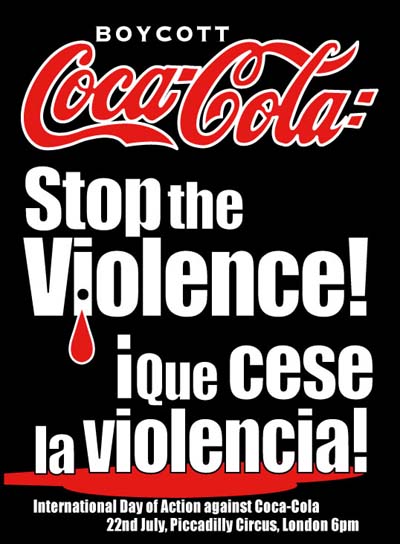The company produces concentrate, which is then shipped to all the licensed bottlers around the world. These bottlers mix the concentrate with filtered water and sweeteners, after which they package and ship out the finished product in bottles and cans. Aside from selling to retailers and restaurants, the bottling companies also sell to soda fountains.
The Coca-Cola company has expanded the brand by bringing in new flavors and drinks. Such products are Diet Coke, Cherry Coke, Vanilla Coke, and Coke Zero.
History
Coca-Cola was discovered on May, 1886, by Doctor John Pemberton – a pharmacist from Atlanta, Georgia. The formula was mixed in his three legged brass kettle, placed in his backyard. The doctor decided upon the name Coca-Cola with the help of his bookkeeper Frank Robinson. Robinson also used his excellent penmanship to script the Coca-Cola logo which is still used today.
By the 1960’s, nearly everyone in the United States had enjoyed Coca-Cola, whether at a local soda fountain, or at an ice cream shop. As the bottling industry increased, and Coke began shipping out in bottles and cans, the soda fountain at local pharmacies rapidly lost popularity. Instead, fast food restaurants became the fad – where one could eat while drinking their favorite soft drink.
On April 23, 1985, the secret “New Coke” formula was invented. With this formula, the Coca-Cola Company continued to dominate the soft drinks market worldwide. Today, Coca-Cola’s products are consumed at the rate of more than one billion drinks per day.
Health Concerns
Because studies have shown that “soda and sweetened drinks are the main source of calories in the American diet”, nutritionists recommend that Coke and other sodas can be dangerous if consumed excessively. Regular soft drink users tend to have a lower intake of calcium, magnesium, ascorbic acid, riboflavin, and vitamin A. The drink has also caused controversy because of its high caffeine levels, which according to doctors can cause physical dependence.
 Since 1980 in the United States, Coca-Cola has been produced with high-fructose corn syrup (HFCS) as an ingredient. Initially it was mixed with the more expensive cane-sugar, but after the 1984 formula, the drink was built up entirely of HFCS. Nutritionists caution against the intake of HFCS as it aggravates obesity and type-2 diabetes more than cane sugar.
Since 1980 in the United States, Coca-Cola has been produced with high-fructose corn syrup (HFCS) as an ingredient. Initially it was mixed with the more expensive cane-sugar, but after the 1984 formula, the drink was built up entirely of HFCS. Nutritionists caution against the intake of HFCS as it aggravates obesity and type-2 diabetes more than cane sugar.In 2008, the Ig Nobel Prize (a parody of Nobel Prizes) in Chemistry was given to Sheree Umpierre, Joseph Hill, and Deborah Anderson, for discovering that Coca-Cola is an effective spermicide. The prize was also awarded to C.Y. Hong, C.C. Shieh, P. Wu, and B.N. Chiang for proving that it is not an effective spermicide.
Coca-Cola is highly identified with the United States, being considered to be an “American Brand” or even representative of America. This identification with the spread of American culture has led to the pun “Coca-Colanization”. There have also been consumer boycotts of Coca-Cola in Arab countries due to Coke’s investment in Israel during the Arab League boycott of Israel. As a result of this, Mecca cola and Pepsi (competitors to Coca-Cola) have been successfully integrated into the Middle East.
